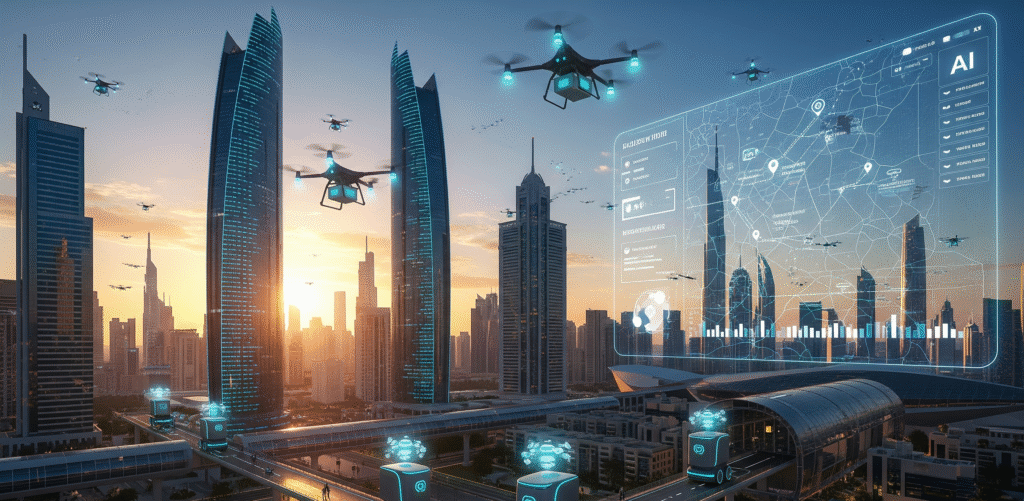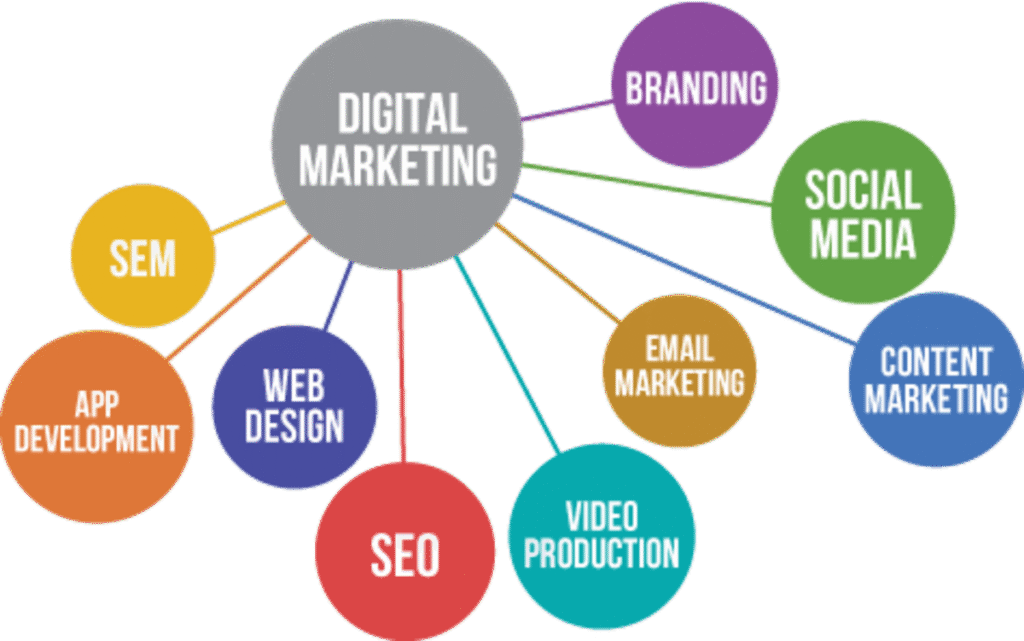
In 2025, the on-demand delivery market in the UAE is booming like never before. With consumers expecting groceries in under 20 minutes and restaurant meals arriving hot and fresh, the “last mile” — the final step of the delivery process — has become the most crucial and complex part of logistics. Urban congestion, delivery delays, fuel costs, and environmental concerns are pushing businesses to innovate.
Enter Artificial Intelligence (AI) and drones — two technologies that are rapidly reshaping how goods reach your doorstep. But can they truly overcome the UAE’s last-mile delivery challenges? And what should businesses do to stay ahead?
At Vision Ranking, we explore how emerging technologies are transforming logistics in the Emirates and what your business can do to adapt and thrive.
Understanding the Last-Mile Problem in the UAE
The “last mile” accounts for over 50% of total delivery costs, and it’s also the part of the supply chain where most inefficiencies occur. In UAE cities like Dubai and Abu Dhabi, challenges include:
- Traffic congestion in dense urban areas
- Diverse delivery needs, from chilled foods to pharmaceuticals
- Complex building layouts and access controls
- Environmental concerns over carbon emissions
- High customer expectations for same-day or even 10-minute deliveries
With the population increasingly relying on mobile ordering, these challenges are growing exponentially. Traditional delivery models are struggling to keep up — prompting a shift toward AI and autonomous technologies.
How AI Is Revolutionizing Last-Mile Delivery
1. Route Optimization in Real-Time
AI algorithms analyze traffic, weather, roadblocks, and customer locations to dynamically create the most efficient delivery routes. Companies like Talabat, Noon, and Careem are integrating these systems to reduce delays and fuel consumption.
➡ Vision Ranking Tip: Businesses using third-party logistics should ensure their partners utilize AI-driven routing platforms for optimal performance.
2. Predictive Demand & Inventory Placement
Machine learning models can forecast when and where demand will spike — enabling strategic placement of inventory at micro-fulfillment centers or dark stores close to the customer. This predictive ability is essential in Q-commerce (quick commerce), where delivery windows are under 30 minutes.
➡ Suggestion: Use AI-powered demand forecasting to stock frequently ordered items in mini-warehouses across city zones.
3. Customer Communication & Satisfaction
AI-enabled chatbots, delivery tracking, and post-delivery feedback loops enhance the customer experience, reducing missed deliveries and improving satisfaction. UAE consumers expect real-time updates and instant support — AI delivers on both.
The Role of Drones in UAE’s Logistics Future
1. Overcoming Urban Gridlock
Drones can bypass congested roads entirely, cutting delivery times from 40 minutes to under 10 in some urban cases. In early 2025, pilot programs by Emirates Post and several private food chains began testing aerial drone deliveries in Dubai’s Business Bay and Marina districts.
➡ Vision Ranking Insight: As UAE authorities expand drone corridor infrastructure (like “SkyPath” in Dubai), early adoption will be a major competitive edge.
2. Eco-Friendly Deliveries
Battery-powered drones produce zero emissions, aligning with UAE’s Net Zero 2050 Strategy. Retailers who integrate drones into their logistics can significantly reduce carbon footprint — a factor that also appeals to environmentally conscious consumers.
➡ Sustainability Tip: Promote drone usage in your branding to attract eco-aware buyers and meet corporate sustainability goals.
3. Rural & Hard-to-Reach Area Coverage
While urban deliveries are the hot focus, drones can also make a big impact in remote desert areas, islands, and outlying suburbs — where road access is limited or time-consuming.
Current Limitations: Not a Full Replacement (Yet)
Despite the promise, AI and drones are not silver bullets. Here’s why:
- Drone regulations are still evolving; currently, only pilot projects operate under strict government oversight.
- Payload capacity for drones is limited — typically under 5 kg.
- Battery life and flight range restrict delivery radius.
- AI systems require massive, quality data and seamless integration with your existing logistics operations.
➡ Vision Ranking Recommendation: Treat these technologies as enhancers, not full replacements. Hybrid models (AI + human + drone) are the future.
What Should UAE Businesses Do in 2025?
At Vision Ranking, we advise businesses to future-proof their delivery strategies through a phased innovation model:
✅ Step 1: Digitize Your Delivery Operations
- Use cloud-based delivery management systems.
- Ensure mobile-first, real-time communication with customers.
✅ Step 2: Integrate AI Tools
- Implement route optimization and demand forecasting.
- Use AI chatbots for pre-sale and post-sale support.
✅ Step 3: Explore Drone Partnerships
- Collaborate with local drone delivery service providers.
- Run pilot programs for lightweight, high-demand products (like food or medicine).
✅ Step 4: Monitor Trends & Regulations
- Stay informed about drone regulations from UAE’s GCAA and Dubai Civil Aviation Authority.
- Keep track of smart city initiatives like Dubai Sky Dome or Abu Dhabi Smart Logistics Hub.
Final Thoughts
AI and drones are no longer futuristic concepts — they’re active disruptors in the UAE’s logistics ecosystem. With consumer demands intensifying and government infrastructure evolving, the time to act is now.
While challenges remain, the strategic use of AI and drone technology can reduce delivery costs, increase speed, improve sustainability, and boost customer loyalty. UAE businesses that embrace this transformation will not only survive the competition — they’ll lead it.
Ready to transform your logistics strategy?
Let Vision Ranking help you navigate the shift with smart SEO, digital visibility, and tech-forward insights tailored for UAE businesses.

